Which NBA players are on the move?
The most impactful deals of the summer were made by the Utah Jazz. Three-time Defensive Player of the Year Rudy Gobert is headed to the Minnesota Timberwolves, while All-Star Donovan Mitchell was dealt to the Cleveland Cavaliers in a surprise move.
And Kevin Durant? He remains a member of the Brooklyn Nets after rescinding his trade request in late August.
A trio of deals went down in the days leading to the NBA draft: The Oklahoma City Thunder acquired JaMychal Green from the Denver Nuggets, the Dallas Mavericks traded for Christian Wood in a deal with the Houston Rockets and the Portland Trail Blazers got Jerami Grant from the Detroit Pistons.
What other moves are in store throughout the rest of the offseason and regular season? ESPN NBA Insider Kevin Pelton is grading all the biggest trades.

Sept. 29: The 8-player trade between OKC and Houston
Thunder get:
David Nwaba
Sterling Brown
Trey Burke
Marquese Chriss
Rockets get:
Derrick Favors
Ty Jerome
Moe Harkless
Theo Maledon
2025 second-round pick (via Atlanta)
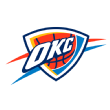 An unusual trade saw the Rockets and Thunder swap eight players, the majority of whom won't end up making their new teams' rosters and none of whom have any guaranteed salary beyond this season.
An unusual trade saw the Rockets and Thunder swap eight players, the majority of whom won't end up making their new teams' rosters and none of whom have any guaranteed salary beyond this season.
Both Houston and Oklahoma City have been overloaded with guaranteed contracts -- 18 apiece -- but the reshuffling looks like a nice piece of business for the Thunder.
Earlier this week, Oklahoma City functionally got two second-round draft picks from the Atlanta Hawks to add Harkless' $4.6 million salary. The Thunder already technically held the Hawks' 2025 second-round pick, but only if it fell in the bottom five of the round. Atlanta reduced those protections so Oklahoma City would get it as long as it was outside the top 10, making it far more valuable for this move.
The downside of the trade was moving the Thunder close to the luxury tax line, limiting their flexibility in future trades. Oklahoma City solved that with this move, which not only saves about $7 million but also should create multiple trade exceptions -- most notably a $10.2 million one for Favors' salary, which would allow the Thunder to add a big salary with about $9.5 million in wiggle room under the tax.
Combining the two transactions, Oklahoma City shed about $2.5 million in salary and ended up with the Hawks' 2029 second-round pick, making this good work by the Thunder front office no matter whether any of the four players make their final roster.
Houston Rockets: B+
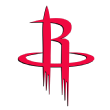 The upside for Houston adding $7 million in salary is a little more subtle, but it could work out for both franchises. In addition to the 2025 second-rounder, the Rockets might also benefit by consolidating their tradeable salary.
The upside for Houston adding $7 million in salary is a little more subtle, but it could work out for both franchises. In addition to the 2025 second-rounder, the Rockets might also benefit by consolidating their tradeable salary.
With roster room for potentially only one of the four traded players, Houston would have seen a lot of expiring money go out the door on Oct. 17. By trading for Favors' larger salary, the Rockets now have a good-sized expiring contract to dangle at the trade deadline.
By contrast to Oklahoma City, the luxury tax is no obstacle for Houston, which still stands about $17 million below the tax line. So the Rockets could add salary in a trade involving Favors or take on long-term contracts that cut into their 2023 cap space (potentially more than $50 million) if they're incentivized with a first-round pick.
Credit Houston for being willing to spend the money to add draft picks rather than pinching pennies during a rebuilding season.
Sept. 27: Thunder send Vit Krejci to Atlanta for Maurice Harkless
Hawks get:
Vit Krejci
Thunder get:
Maurice Harkless
Second-round pick
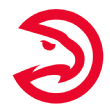
As Zach Lowe and I discussed when we previewed the Hawks on the Lowe Post earlier this month, Atlanta trading Harkless was one of the easiest predictions this NBA season. Atlanta was just into the luxury tax and Harkless' $4.6 million salary made him the obvious candidate to move.
The Hawks dealt Harkless less than three months after acquiring him as part of the Kevin Hunter trade with the Sacramento Kings, which also yielded Justin Holiday and a first-round pick. With Harkless out of the picture, Atlanta will rely on recent first-round picks AJ Griffin and Jalen Johnson to provide depth at the forward spots.
It will be worth watching whether Krejci fits into that picture. Per ESPN NBA front office insider Bobby Marks, precisely half of Krejci's $1.6 million salary is guaranteed this season. With just 12 players on fully guaranteed contracts, Atlanta can keep Krejci through the first half of the season before deciding in January whether to guarantee the remainder of that amount.
Although the Hawks are currently $1.8 million below the tax line, assuming they keep Krejci and second-round pick Tyrese Martin along with their guaranteed players, they could still go into the tax if Clint Capela ($2 million) and Dejounte Murray ($1.5 million) achieve incentives currently considered unlikely.
If Capela and Murray are trending that direction, Atlanta might have to offload some more salary before the deadline, and Krejci is the most likely candidate.
Oklahoma City Thunder: B

As Marks explained on Twitter, Oklahoma City was able to take on more salary in this trade using a disabled player exception generated by Chet Holmgren's season-ending Lisfranc injury.
This is almost certainly the last money-adding move this season for the Thunder, who are now just $2.5 million shy of the luxury-tax line because they still have a $27.4 million buyout for Kemba Walker on their payroll this season. Oklahoma City also has unlikely incentives that could move the team closer to the tax, with Luguentz Dort capable of making $500K apiece if he makes the All-Defensive first team or wins Defensive Player of the Year, per Marks.
With 18 players under guaranteed contract, the Thunder may not bother having Harkless show up for training camp -- something they've already done with guard Ty Jerome. They'll have until Oct. 17 to see whether they can move Harkless elsewhere or he's one of the three players they waive to get down to 15.
Sept. 22: Bogdanovic to Detroit as Utah fire sale continues
Pistons get:
Bojan Bogdanovic
Jazz get:
Kelly Olynyk
Saben Lee
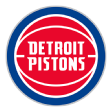 Although the Pistons weren't an obvious Bojan Bogdanovic destination, as a team that's likely to spend another season in the lottery, the deal makes a lot of sense for Detroit at this price.
Although the Pistons weren't an obvious Bojan Bogdanovic destination, as a team that's likely to spend another season in the lottery, the deal makes a lot of sense for Detroit at this price.
In the short term, Bogdanovic will help the Pistons' spacing, giving them a better opportunity to evaluate young guards Cade Cunningham and Jaden Ivey. Bogdanovic's 2.6 3-pointers per game last season ranked 27th in the NBA, one spot behind new teammate Saddiq Bey, giving Detroit two players who have to be accounted for on the perimeter flanking Cunningham, Ivey and whoever starts at center (Marvin Bagley III, Jalen Duren or incumbent Isaiah Stewart).
Down the road, Bogdanovic could be most valuable to the Pistons in a deadline trade to a contender. His skill set and reasonable expiring contract ($19.55 million) make him an ideal fit with teams loading up for a playoff run. The low cost Detroit paid for Bogdanovic suggests there wasn't a first-round pick available now, but at a minimum, it's reasonable to expect the Pistons could yield multiple second-rounders if Bogdanovic stays healthy and plays well.
That should be the case. Bogdanovic is a far better fit in Detroit's starting five than Bagley, who figured to inherit the power forward position after the Pistons dealt Jerami Grant to the Portland Trail Blazers ahead of the draft.
Bagley's stretch potential hasn't materialized (he has made 29% of his career 3s), and his high-usage game clashes with Detroit's guards. The Pistons would be better served bringing Bagley off the bench and putting Bogdanovic with the starters as the recipient of the drive-and-kick opportunities Cunningham and Ivey are likely to create.
Teammates shot just 34% on potential 3-point assist opportunities generated by Cunningham last season, a figure in the 19th percentile among all players who created at least 250 such shots, according to Second Spectrum tracking. Expect that mark to improve with the addition of Bogdanovic.
Ultimately, Detroit isn't giving up much. With the Pistons previously at 16 guaranteed contracts without counting guard Kemba Walker, considered a likely buyout candidate, Lee might have been waived to get down to 15.
When Detroit signed Olynyk, he was coming off a dominant two-month stretch with the Houston Rockets after being dealt there at the 2021 trade deadline. Olynyk's strong play didn't carry over with the Pistons, as he shot a career-worst 34% from 3-point range. Olynyk's ability to play center also no longer carries much value on a team with Bagley, Duren and Stewart.
If anything, Detroit benefits from shedding the $3 million of Olynyk's $12.2 million 2023-24 salary that is guaranteed, per ESPN's Bobby Marks.
Utah Jazz: D
 As with the Jazz's previous deal that sent Patrick Beverley to the Lakers, it's surprising they yielded no draft picks out of trading a starter on a reasonable contract.
As with the Jazz's previous deal that sent Patrick Beverley to the Lakers, it's surprising they yielded no draft picks out of trading a starter on a reasonable contract.
Surely, Utah valued Olynyk, who was originally drafted by Jazz CEO Danny Ainge while both were with the Boston Celtics. If Olynyk puts up big numbers on a rebuilding Utah team, his salary is reasonable enough that Olynyk could have positive trade value down the line.
As for Lee, he's been effective in the G League (Lee's 2.0 wins above replacement player ranked fourth in last season's Showcase competition, per my metric) but has yet to translate that to the NBA level with consistency. Lee lacks 3-point range and has made just 48% of his 2-point attempts in the NBA, not good enough to cut it for a score-first point guard.
With the Jazz facing a roster crunch of their own (they now have 18 players with guaranteed contracts), Lee could find himself on the outside in Utah as well.
Ultimately, the benefit for the Jazz here seems likely to be financial. Lee and Olynyk make about $5 million less combined than Bogdanovic, moving Utah safely below the luxury-tax line. Ideally, the Jazz would utilize that flexibility to increase their options when trading the other veterans on the roster, including Jordan Clarkson, Mike Conley and perhaps Rudy Gay.
If Utah can make a better deal down the line because of this one, it will become much easier to justify getting relatively little in return for Bogdanovic.
July 1: Wolves get Gobert in massive deal
Timberwolves get:
Rudy Gobert
Jazz get:
Malik Beasley
Patrick Beverley
Walker Kessler
Jarred Vanderbilt
Leandro Bolmaro
Four first-round picks
 In theory, I'm intrigued by the idea of Minnesota moving Karl-Anthony Towns to power forward during the regular season.
In theory, I'm intrigued by the idea of Minnesota moving Karl-Anthony Towns to power forward during the regular season.
Once we get to the playoffs, though, is another story.
Last year's Timberwolves defense, which ranked 13th in points allowed per 100 possessions during the regular season, seems close to the peak for one built around Towns at center. It probably still wasn't good enough for Minnesota to realistically advance deep into the playoffs.
Despite the fact that Utah finished just three spots higher in defensive rating, adding Gobert should be transformational for the Timberwolves' defense during the regular season. Where the Jazz relied on Gobert to cover up for a below-average set of perimeter defenders, he'll be working with somewhat more talent in Minnesota.
Offensively, Towns has more than enough skill to make playing power forward next to Gobert work. As the self-proclaimed greatest big man shooter of all time, Towns can keep his defender at home when Gobert screens for Timberwolves guards Anthony Edwards and D'Angelo Russell in the pick-and-roll.
While Gobert's presence in the paint might cramp things a bit when Towns posts up, it's similar to the pairing of Towns and non-shooter Vanderbilt last season. (Vanderbilt's average shot distance was 3.1 feet last season, per Basketball-Reference.com data, barely more than Gobert's 2.7.)
All that adds up to a Minnesota team that should be stronger in the regular season. As deep as the Western Conference looks with the Denver Nuggets, LA Clippers and Portland Trail Blazers all getting healthy, I'd give the Timberwolves better than even odds of finishing in the top six of the standings and avoiding the play-in tournament. (That would be Minnesota's highest seed since 2004, the only time in franchise history the Timberwolves have won a playoff series.)
MORE: Grade for the Jazz
July 1: Celtics add Malcolm Brogdon
Celtics get:
Malcolm Brogdon
Pacers get:
Nik Stauskas
Malik Fitts
Juwan Morgan
Daniel Theis
Aaron Nesmith
2023 first-round pick
Boston Celtics: A-
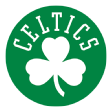 After All-Star Dejounte Murray, Brogdon is probably the second-best player to change teams so far this NBA offseason. The Celtics landing Brogdon weeks after losing in the NBA Finals -- and doing so without giving up any of their top eight players in playoff minutes -- is an incredible outcome.
After All-Star Dejounte Murray, Brogdon is probably the second-best player to change teams so far this NBA offseason. The Celtics landing Brogdon weeks after losing in the NBA Finals -- and doing so without giving up any of their top eight players in playoff minutes -- is an incredible outcome.
Adding Brogdon required Boston ownership to greenlight a large luxury-tax bill next season. This deal instantly added several million to the Celtics' payroll before accounting for the four extra roster spots they'll now have to fill. Factor in Danilo Gallinari, penciled in at the $6.5 million taxpayer midlevel exception after ESPN's Adrian Wojnarowski reported he prefers to sign with Boston once he's officially waived by the San Antonio Spurs, and the Celtics will likely be pushed more than $20 million into the tax.
By comparison to the enormous tax bills rung up by the Golden State Warriors and LA Clippers, Boston's payroll is still modest, but it reflects a more aggressive approach than the Celtics took in the past. That's particularly true because Brogdon has two additional years remaining on his contract at $22.5 million from an extension signed last fall. By 2024-25, when Jaylen Brown is up for a new contract, Boston's payroll could be enormous.
For that investment, the Celtics are getting another playmaker who fits perfectly. On offense, Brogdon immediately becomes Boston's best distributor. The 25.6 shots per 100 possessions on which Brogdon was the passer last season, according to Second Spectrum tracking, were more than any Celtics player. (Marcus Smart led the team at 24.8.)
At the same time, Brogdon can play off the ball to complement Brown, Smart and Jayson Tatum handling it. He's a career 38% 3-point shooter whose diet of attempts beyond the arc should hew closer to what it was in Milwaukee (where 83% of his attempts were assisted, via Basketball-Reference.com) than in Indiana (60%). For his career, Brogdon has made 42% of catch-and-shoot 3 attempts as compared to 32% of all others, per Second Spectrum.
On defense, the 6-foot-5 Brogdon gives Boston yet another physical defender for his size capable of switching on bigger opponents. Already, the Celtics' playoff rotations featured few openings for opponents to attack. If Brogdon supplants the smaller Payton Pritchard and Derrick White in the backcourt, those options will shrink further on the perimeter.
The biggest challenge for Boston coach Ime Udoka may be finding enough minutes to go around with the additions of Brogdon and Gallinari. During the regular season, that challenge matches up well with Brogdon's biggest shortcoming: a series of injuries that kept him off the court. Brogdon has missed at least 16 games in every season since his rookie year. With Pritchard and White still in reserve, the Celtics should be covered during those absences and can limit Brogdon's workload in the regular season.
Besides the alternative cost of adding salary, Boston gave up remarkably little for Brogdon. Nesmith was the last pick of the lottery two years ago in large part because of his shooting prowess but made just 27% of his 3s last season, making him more of a lotto ticket at this stage. Getting off the two remaining guaranteed years on Theis' contract is a win for the Celtics despite the organization's fondness for him and the role Theis did play as a third center in the playoffs. All the other players Boston is sending to Indiana had non-guaranteed contracts that will need to be guaranteed to work as matching salary.
Down the road, there is some concern that Celtics ownership will pull back spending after the excitement of a surprise Finals run wears off and adding Brogdon will foreclose other options to the team -- particularly if his trade value suffers in his 30s. Still, Boston's title window is open now and adding Brogdon improves the chances of Boston hanging an 18th banner at TD Garden.
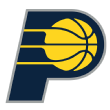 Once the New York Knicks (Jalen Brunson) and Washington Wizards (Monte Morris) filled their needs for starting point guards, the market for Brogdon surely contracted substantially. Although this deal doesn't yield the kind of draft-pick compensation the Pacers were probably hoping for, I understand getting value for Brogdon while it's there.
Once the New York Knicks (Jalen Brunson) and Washington Wizards (Monte Morris) filled their needs for starting point guards, the market for Brogdon surely contracted substantially. Although this deal doesn't yield the kind of draft-pick compensation the Pacers were probably hoping for, I understand getting value for Brogdon while it's there.
For one, Brogdon would have to actually play after seeing action in just eight games after last year's deal bringing Tyrese Haliburton to Indiana. With Haliburton and T.J. McConnell at point guard, that would probably mean taking minutes away from recent first-round picks Chris Duarte and Bennedict Mathurin on the wing. Duarte and Mathurin are important parts of the Pacers' future.
Second, Brogdon's injury history meant that planning for a deal to come together at the trade deadline would have been risky. If Brogdon was sidelined, his value would dwindle and a move might have been impossible to make.
I do wonder if Indiana could have waited out the trade market for Kevin Durant and Kyrie Irving to see whether a multiteam deal created an opening for a point guard. (One of the Durant trades I proposed sent Ben Simmons to the Pacers with Brogdon as the key return for the Brooklyn Nets.) Surely, Indiana initiated those conversations in the past 24 hours and decided whatever possibility existed wasn't worth the possibility of being left with no deal.
Beyond the Boston draft pick, the Pacers can add Nesmith to their fleet of young wins and see whether his shooting develops as anticipated. Additionally, despite taking on the Celtics' excess contracts as guarantees, Indiana created an additional few million dollars in cap space and now has more flexibility to take on unwanted deals from other teams.
July 1: Hawks trade Huerter to Kings
Kings get:
Kevin Huerter
Hawks get:
Justin Holiday
Maurice Harkless
2024 first-round pick (top-14 protected)
Atlanta Hawks: B+
 More moves seemed likely after the Hawks added Dejounte Murray in a trade earlier this week, and moving Huerter is the next (though perhaps not last) domino. Adding Murray gave Atlanta a crowd in the backcourt, with Huerter and Bogdan Bogdanovic also competing with him for minutes at shooting guard. Paradoxically, it also left the Hawks pretty thin with just eight proven NBA players before getting to recent first-round picks AJ Griffin and Jalen Johnson.
More moves seemed likely after the Hawks added Dejounte Murray in a trade earlier this week, and moving Huerter is the next (though perhaps not last) domino. Adding Murray gave Atlanta a crowd in the backcourt, with Huerter and Bogdan Bogdanovic also competing with him for minutes at shooting guard. Paradoxically, it also left the Hawks pretty thin with just eight proven NBA players before getting to recent first-round picks AJ Griffin and Jalen Johnson.
This deal addresses both issues, flipping Huerter into a pair of wings on cheaper contracts who play bigger while also recouping a bit of the draft value sent to the San Antonio Spurs for Murray.
Of the two players Atlanta gets back, Holiday is more important. Despite being listed an inch shorter and 10 pounds lighter than Huerter, he has been more likely to defend bigger opponents over the course of his career. According to Second Spectrum tracking, 52% of Holiday's defensive matchups last season were against players who primarily played one of the two forward spots as compared to 45% for Huerter.
Entering the final year of his contract, Holiday is making a little less ($6.3 million) than the taxpayer midlevel exception. That savings is important for a team that pushed into the tax with the Murray trade. The Hawks have now moved below the tax line, though they'll go into it by filling out their roster -- pending a possible trade involving power forward John Collins.
As for Harkless, he's a fringe rotation player on a good team at this stage of his career. Harkless played sparingly as a poor fit with the Miami Heat before finding a larger role with Sacramento, starting 44 of the 73 games he played for the Kings the past two seasons. At 6-foot-7, Harkless can defend bigger forwards, but his iffy shooting (31% on 3s last season, 32% career) limits his offensive value.
The draft pick Atlanta gets out of this deal is much more heavily protected than the ones the Hawks sent to San Antonio. There's a three-year window from 2024 through 2026 for it to convey, though protection never drops below top-10 in 2026. According to The Athletic, it would otherwise convert into a pair of second-round picks.
In a vacuum, I'm not sure whether I'd rather have Huerter or two players and a draft pick that realistically might not convey. (Sacramento has picked outside the top 10 just twice in the past 14 years, one of which came when the team owed an unprotected first-rounder in 2019.) Within the specific context of Atlanta's situation, however, this was a trade worth doing.
Sacramento Kings: B-
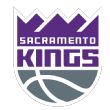 As Kings plans go, the one they've executed in the first couple days of NBA free agency seems better than most. Sacramento has added a pair of wings in their mid-20s (Malik Monk, who agreed to a deal yesterday, is 24 and Huerter will turn 24 later this summer) who shoot the ball well. Both hit 39% of their 3-point attempts last season and are on reasonable contracts.
As Kings plans go, the one they've executed in the first couple days of NBA free agency seems better than most. Sacramento has added a pair of wings in their mid-20s (Malik Monk, who agreed to a deal yesterday, is 24 and Huerter will turn 24 later this summer) who shoot the ball well. Both hit 39% of their 3-point attempts last season and are on reasonable contracts.
Huerter ended up being traded on the very first day of the four-year, $65 million extension he signed with the Hawks last fall. That deal pays him like a midtier starting wing, which is what Huerter was in Atlanta. Huerter is a plus 3-point shooter on decent volume (7 attempts per 36 minutes last season) who can handle the ball a bit and isn't a defensive liability.
The big Kings-specific question is how much of an upgrade Huerter is over Donte DiVincenzo, acquired by Sacramento at the trade deadline in exchange for Marvin Bagley III. The Kings opted not to make DiVincenzo a qualifying offer, allowing him to become an unrestricted free agent, and the additions of Huerter and Monk surely indicate he's headed elsewhere.
Huerter is undoubtedly the better player at this stage over DiVincenzo. He's a stronger shooter, particularly as compared to what we saw from DiVincenzo coming off ankle surgery last season (he shot 34% from 3, dragging his career mark down to 35%), three inches taller and nearly two years younger.
Certainly, Sacramento wasn't obligated to bring back DiVincenzo after getting a free look at him after the deadline. But I'm not convinced the difference between their next contracts will be worth giving up a pick that could still be quite painful from the Kings' standpoint.
Given the importance Sacramento has placed on ending the NBA's longest playoff drought and the opportunity teams now have to reach the play-in tournament, tanking to keep the pick won't be an option. So if the Kings do send one to Atlanta, it will likely be in the middle of the first round.
With the additions of Huerter and Monk, Sacramento's top-eight rotation looks pretty solid. Either Huerter or Monk could flank De'Aaron Fox in the backcourt with Harrison Barnes and No. 4 pick Keegan Murray at forward and Domantas Sabonis at center. That would leave Mitchell and the other guard coming off the bench along with center Richaun Holmes.
After that, the Kings' depth declines in a hurry to the likes of Terence Davis, Trey Lyles and Chimezie Metu. Depending on whether the Monk deal is completed using Sacramento's non-taxpayer midlevel exception or cap space, the Kings will have either their $5.4 million room midlevel or $4.1 million biannual exception available to continue filling out the bench.

PRE-FREE AGENCY DEALS
June 30: Nets acquire Royce O'Neale from Utah
Nets get:
Royce O'Neale
Jazz get:
2023 first-round pick
Brooklyn Nets: C-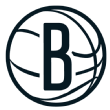
The timing of this deal being almost simultaneous to the report that the Nets will work with Kevin Durant to meet his request for a trade makes it difficult to understand how O'Neale fits in Brooklyn.
Adding O'Neale seemed to make sense for the Durant-Kyrie Irving Nets, who had limited ability to add salary via trade using the $11.3 million exception created in the James Harden trade and a need for wing depth. Now, Brooklyn's depth chart is full of TBDs, meaning O'Neale could prove somewhat redundant or unnecessary.
For now, then, let's discuss O'Neale independent of fit. He's developed into an above-average 3-point shooter on moderate volume, having hit 38% in his career and 39% last season on 4.0 attempts per game. That shooting makes O'Neale an efficient scorer; his .608 true shooting percentage in 2021-22 was a career high.
At the same time, O'Neale hasn't been holding up the defensive part of his 3-and-D billing. As recently as 2018-19, he earned an honorable mention in my All-Defensive Team picks, but since then O'Neale has increasingly struggled to defend in the kind of 1-on-1 situations the Utah Jazz faced in the playoffs when Rudy Gobert's impact as a help defender was muted because of five-out lineups.
At 6-foot-4, O'Neale was always going to be stretched defending the league's best forwards, so struggling against Kawhi Leonard and Paul George was one thing. Getting torched by Jalen Brunson in this season's first-round matchup against the Dallas Mavericks was far more concerning. At this point, I think it's appropriate to consider O'Neale more valuable on offense than defense.
Over the next two seasons, O'Neale will make $9.2 million and $9.5 million, the latter year guaranteed for just $2.5 million through next summer's free agency. That's a bit less than the non-taxpayer midlevel exception and certainly preferable to paying a veteran a multiyear contract at that amount. Does the excess value O'Neale provides outweigh a first-round pick? I'd say probably not, meaning I wouldn't make this deal absent the confusing team context.
Utah Jazz: B+
There are also more questions than answers about the Jazz's roster at this point pending a possible trade involving Gobert. If Utah does move Gobert, my assumption is the return will include multiple starting-caliber players, including possibly a replacement for O'Neale at small forward. In that case, grabbing value for O'Neale now seems to make sense.
It is true the Jazz won't get a particularly good first-round pick out of this deal because of the contingencies applied by the Nets. Per Wojnarowski, it's the worst out of either Brooklyn's own pick, one from the Rockets (which Houston can swap for the Nets' pick) or one from the Philadelphia 76ers via the Harden trade. Granting the uncertainty about Brooklyn's roster, odds are that pick will fall in the 20s at best.
Still, depending on the ultimate configuration of the Jazz's roster, they either can utilize the resulting $9.2 million trade exception to add a player or manage to mitigate their luxury-tax bill. So I do think this deal was worth doing before Utah figures everything else out.
June 29: Atlanta acquires Dejounte Murray from San Antonio
Hawks get:
Dejounte Murray
Spurs get:
Danilo Gallinari
2023 first-round pick (via Charlotte)
2025 first-round pick
2027 first-round pick
Future pick swap with Atlanta
Adding Murray will surely revive the age-old question of how the Hawks can utilize Trae Young's shooting without constantly having the ball in his hands. Young's 8.7 minutes per game time of possession ranked third highest in the NBA, per Second Spectrum tracking on NBA Advanced Stats; and the 3,730 pick-and-rolls he ran, according to Second Spectrum, were 11% more than the next-highest player (Luka Doncic).
Building a heliocentric offense around Young has produced great regular-season results for Atlanta, which ranked second behind the Utah Jazz in offensive rating in 2021-22. Come playoff time, however, Young struggled as the primary option against the aggressive defense of the Miami Heat, averaging just 15.4 points per game on 32% shooting with more turnovers (31) than assists (30).
Given Young powered the Hawks' surprising run to the Eastern Conference finals in 2020-21, the question isn't whether he can succeed in the playoffs. It's whether putting so much offensive responsibility in his hands maximizes his value to Atlanta against the best defenses. Enter Murray, another high-volume ball handler who ranked sixth overall in pick-and-rolls (2,608) and seventh in time of possession (7.4 MPG).
MORE: Grade for the Spurs
June 29: Wizards acquiring Barton, Morris from Nuggets
Wizards get:
Will Barton
Monte Morris
Nuggets get:
Kentavious Caldwell-Pope
Ish Smith
Denver Nuggets: C-
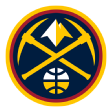 More than anything -- even the luxury tax implications, though we'll get to them -- this deal looks like the Nuggets are betting on the health of Jamal Murray and Michael Porter Jr., both of whom are slated to return from long-term injuries next season.
More than anything -- even the luxury tax implications, though we'll get to them -- this deal looks like the Nuggets are betting on the health of Jamal Murray and Michael Porter Jr., both of whom are slated to return from long-term injuries next season.
With this trade, Denver goes from having a backup point guard in Morris capable of starting (he started 74 of his 75 games played last season with Murray sidelined following ACL surgery) and a combo wing in Barton capable of sliding to small forward to replace Porter to a depth chart that looks awfully thin at both positions.
If Murray and Porter are the players we saw in 2020-21, adding Caldwell-Pope alongside them could strengthen the Nuggets' best five-man lineup. If they miss extended periods, Denver is less equipped to replace them, pending additional moves this summer.
On the positive side, Caldwell-Pope looks like a great fit with the Nuggets as the new version of what Gary Harris once was in Denver. He's developed the "3" part of the 3-and-D equation, hitting 39.5% of his 3-pointers over the past three seasons at moderate volume (5.3 attempts per game in 2021-22).
Caldwell-Pope is also a capable on-ball defender, allowing the Nuggets to cross-match him and Murray, putting Caldwell-Pope on the better opposing guard. Using Second Spectrum tracking data and my analysis of lineup data, 29% of Caldwell-Pope's individual matchups last season were against players who primarily saw action at point guard, as compared to 18% for Barton.
Although Barton and Caldwell-Pope have similar size (Barton is listed an inch taller but 23 pounds lighter), Barton has been much more likely to play small forward over the course of his career. Lineups with Caldwell-Pope at small forward will be a bit small to match the West's bigger combo forwards, taking away a bit of lineup versatility for coach Michael Malone.
Additionally, Denver undoubtedly downgraded in the point guard half of this trade, but this could be a precursor to adding another this summer. The Nuggets have been linked to Vasilije Micic, the MVP of the last two EuroLeague final fours, whose NBA rights are held by the Oklahoma City Thunder. If so, however, that means paying $4.7 million to the well-traveled Smith (who could suit up for his record 13th NBA franchise if he sticks with the Nuggets) as a third point guard.
All of which brings us to the financial element. After completing this trade, Denver begins free agency right at the projected luxury tax line by virtue of saving nearly $5 million in salary on the heels of the recent trade shedding JaMychal Green's $8.2 million.
Because the Nuggets have just 11 players under contract, including first-round picks Christian Braun and Peyton Watson, they'll surely go into the tax to start the season by filling out the roster. Given what's at stake for Denver with two-time reigning MVP Nikola Jokic in his prime, I hope the Nuggets plan to reinvest some of the savings by either using the projected $6.4 million taxpayer midlevel exception or their trade exception (which will grow to Morris' $9.1 million salary if they take in Smith using the slightly smaller exception generated in the Green trade) to add forward depth.
Behind Porter, whose history of back injuries makes his return from surgery more complicated than Murray's more straightforward ACL rehab, Denver has only Watson, the 30th pick who played sparingly in his lone season at UCLA. Aaron Gordon can slide to small forward as well, but the Nuggets don't have enough power forward depth to cover that spot without any contributions from Gordon.
Until we see what Denver has in store in free agency, it's tough to know exactly what to make of this trade. Still, shedding salary and not getting much value in return for Morris makes this look like a losing move.
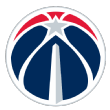 From the Wizards' perspective, this move continues to spin the Russell Westbrook trade forward in ways that enhance the team's depth. Caldwell-Pope, who came from the Lakers as part of the return for Westbrook, has now turned into a pair of potential starters for Washington.
From the Wizards' perspective, this move continues to spin the Russell Westbrook trade forward in ways that enhance the team's depth. Caldwell-Pope, who came from the Lakers as part of the return for Westbrook, has now turned into a pair of potential starters for Washington.
Given Kyle Kuzma came directly from the Lakers, and Kristaps Porzingis was acquired in part for a player (Spencer Dinwiddie) added via sign-and-trade expansion of the Westbrook deal, you can trace four-fifths of the Wizards' likely starting five to that transaction.
Morris in particular fills a need the Wizards have had since trading Westbrook. Dinwiddie didn't prove a fit at point guard next to Bradley Beal, but Morris' skill set should better complement Beal -- under the assumption Beal will re-sign with Washington in free agency.
Because of Morris' strong 3-point shooting (39.5% last season, right at his career mark), he doesn't need the ball in his hands when Beal is operating with it yet can take ballhandling and distribution duties off Beal's plate. Although he's proven a capable starting point guard, the two remaining years on Morris' contract ($9.1 million this season, $9.8 million in 2023-24) pay him more like a backup, which is a boon for the Wizards.
Meanwhile, Barton is a more natural fit at small forward next to Beal. My biggest concern from Washington's standpoint is that Barton likes to operate on the ball more than Caldwell-Pope, which could be difficult to manage with Beal and power forward Kyle Kuzma already looking for those touches. Still, Barton showed in Denver he could operate in a role with moderate usage, and he too is an off-ball threat, having hit 2.2 3-pointers per game at an above-average clip last season.
Financially, the Wizards could add the extra salary in this trade without issue. Presuming Beal signs on starting at his maximum salary (a projected $42.7 million), Washington will still be more than $10 million below the estimated luxury tax line with 12 players under contract. The Wizards could still use the bulk of their non-taxpayer midlevel exception to add another ball handler behind Morris.
As was the case with the Westbrook trade, this one doesn't necessarily make Washington a playoff team. However, it's a sensible deal that upgrades the Wizards in the short term without costing them anything down the road -- a no-brainer from their standpoint.
June 28: Knicks clear major cap space ahead of free agency
Pistons get:
Nerlens Noel
Alec Burks
Two future second-round picks
$6 million cash
Knicks get:
TBD
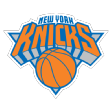 ESPN's Tim MacMahon reporting on Tuesday that the Knicks are "strong favorites" to sign Dallas Mavericks guard Jalen Brunson after NBA free agency opens on Thursday was an indication New York had something in the works.
ESPN's Tim MacMahon reporting on Tuesday that the Knicks are "strong favorites" to sign Dallas Mavericks guard Jalen Brunson after NBA free agency opens on Thursday was an indication New York had something in the works.
To make the offer in excess of $100 million that MacMahon reported is widely anticipated, the Knicks had to move either Burks or Noel. Instead, they traded both, which could signal more additions for New York in free agency. The Knicks won't necessarily need all $29.4 million in projected cap space they'd currently have if they renounce the rights to free agent Ryan Arcidiacono to sign Brunson to a deal that large.
Instead, trading both Burks and Noel offers a couple of possibilities. First, New York could still waive veteran Taj Gibson, if only as a precursor to re-signing him to a similar contract using the room exception. Moving Gibson into the room exception would give the Knicks somewhere in the neighborhood of $10 million in cap space to use after signing Brunson, depending on his first-year salary.
Alternatively, New York could add Brunson without ever creating cap space at all. Sending out Burks and Noel allows them to make this a three-team trade with the Mavericks for Brunson, which would benefit Dallas by creating a trade exception for part of Brunson's salary and allow the Knicks to keep Gibson and have access to their projected $10.4 million non-taxpayer midlevel exception as well as the biannual exception.
As The Athletic's John Hollinger pointed out, New York could even structure the trade to create an exception for Kemba Walker's $9.2 million salary because the deal struck on draft night sending Walker to Detroit has not yet been finalized.
The Knicks accomplished all that at a relatively low price for moving $19 million in salary. The Pistons get back their own 2023 second-round pick, which will likely be in the top half of the round, but the protected Miami Heat pick has little value even if it does convey. We can debate the merits of New York potentially paying Brunson so much -- I'm more optimistic than most -- but the Knicks did a skillful job of getting out of last summer's commitments to Burks and Noel in order to try free agency again.
Detroit Pistons: B-
 Evaluating the Pistons' side of this move requires considering a pair of viewpoints. First, was this better than using the team's cap space in free agency? I'd say probably yes, once Detroit added Jalen Duren via last week's deal with New York and a move for fellow center Deandre Ayton in restricted free agency made less sense for the Pistons.
Evaluating the Pistons' side of this move requires considering a pair of viewpoints. First, was this better than using the team's cap space in free agency? I'd say probably yes, once Detroit added Jalen Duren via last week's deal with New York and a move for fellow center Deandre Ayton in restricted free agency made less sense for the Pistons.
There's no urgency for Detroit to make a splash in free agency. The Pistons will have plenty of cap space again next summer, as their young core won't get appreciably more expensive at least until rookie contracts for Saddiq Bey and Isaiah Stewart expire after the 2023-24 season. Although Burks and Noel have two years apiece remaining on their contracts, Detroit inherits team options on both players.
Getting back their own second-round pick helps the Pistons if they spend another season in the lottery. They already missed out on the No. 32 pick in 2021 and this year's No. 33 pick due to long-ago trades. And it's entirely possible if Burks and Noel play well in Detroit and demonstrate they're healthy that they'll have value leading up to the deadline.
The other relevant question is whether the Pistons got enough here in exchange for helping a New York team that had no choice but to dump salary in the next couple of days. That answer is less clear. Even with players like Burks and Noel, who have value on the court, teams with cap space have typically extracted a premium in situations where another team needs to create some in a hurry.
It's possible Detroit suffered because of the high number of other teams with the ability to take on contracts. The Oklahoma City Thunder can still do so using cap space until the new league year begins and Shai Gilgeous-Alexander's contract extension kicks in, while the Indiana Pacers and Orlando Magic could be in a similar position of looking to add picks rather than current free agents.
Given that context, I think this was a positive move for the Pistons, if not the home run we saw on draft night.

DRAFT-DAY DEALS
Knicks go wild on draft night, acquire three future first-rounders
New York was at the center of a series of trades during the first round of Thursday's draft that not only created additional cap space but also boosted its stock of future first-rounders for moves yet to come.
Although the three trades were technically separate, let's discuss them together with New York as a focal point.
New York Knicks get:
2023 first-round pick (from Detroit via Oklahoma City; top-18 protected)
2023 first-round pick (from Washington, via Oklahoma City; top-14 protected)
2025 first-round pick (from Milwaukee, via Detroit; top-four protected)
Detroit Pistons get:
Jalen Duren (No. 13 pick in 2022)
Kemba Walker
Charlotte Hornets get:
2023 first-round pick (from Denver, via Oklahoma City and New York; top-14 protected)
Three 2023 second-round picks (via New York, Utah and Dallas or Miami)
2024 second-round pick (via New York)
Oklahoma City Thunder get:
Ousmane Dieng (No. 11 pick in 2022)
New York Knicks: B+

Let's start with the cap piece of this for the Knicks. Shedding this year's No. 11 pick (with a cap hold of $4.5 million) and Walker (due to make $9.2 million in the final season of his contract), New York has gone from entering the draft projecting right around the $122 million cap estimate to suddenly having a modest amount of room.
If the Knicks waive Taj Gibson, whose $5.16 million salary for 2022-23 is non-guaranteed, they could create $16 million in cap room while retaining Bird rights to re-sign unrestricted free agent Mitchell Robinson. That leaves New York one key move away from an offer that could make the Dallas Mavericks think twice about re-signing guard Jalen Brunson.
By trading either Alec Burks or Nerlens Noel, the Knicks would create more than $24 million in cap room, enough to make Brunson a four-year offer well north of $100 million. Given Burks recently underwent foot surgery (as first reported by Fred Katz of The Athletic) while Noel was limited to 25 games last season, that will likely require additional draft compensation. That's where the future picks New York added might come in.
In exchange for the No. 11 pick, the Knicks got three 2023 first-rounders from Oklahoma City with varying degrees of protection. The one they flipped to the Hornets, originally from the Denver Nuggets, is easily the most likely to convey next year but has the least upside. It will probably be a pick in the 20s, requiring New York to add in many of the team's future second-rounders to get the No. 13 pick from Charlotte.
Subsequently, the Knicks flipped that 13th pick and Walker to the Pistons for the 2025 Milwaukee first-round pick Detroit acquired in yesterday's reported deal sending Jerami Grant to Portland.
Ultimately, New York comes away with three future first-rounders in exchange for the No. 11 pick, four second-rounders and Walker. The Knicks seem to be betting on two things: the possibility that some of those picks become more tantalizing as the protections on the Detroit and Washington first-rounders diminish over time, and that pushing the picks into the future preserves their trade value.
It's unlikely any one of the three picks New York landed will be as good as the two the team traded away, but the Knicks have given themselves multiple bites at the apple and more currency to offload salary ahead of next week's start to free agency.
Detroit Pistons: A-

This seems like a nice piece of business for the Pistons, who were able to convert a semi-distant first-rounder of uncertain value into a sure late lottery pick at the cost of taking on Walker's $9.2 million salary. Detroit could yet save a bit of that amount by agreeing to a buyout with Walker, something ESPN's Adrian Wojnarowski reported the team would look to do.
For now, adding Duren and Walker leaves the Pistons with more than max-level cap room. Depending on whether the team exercises options on the contracts of guards Hamidou Diallo and Frank Jackson, Detroit could still re-sign restricted free agent Marvin Bagley III before offering a max-level deal to a player with six or fewer years of experience.
The question remains who that player might be. Adding another center in Duren to 2020 first-round pick Isaiah Stewart suggests it might not be Phoenix Suns restricted free agent Deandre Ayton. And if the Pistons really had designs on Brunson, they probably wouldn't help New York clear space for an offer to him.
That seems to point toward Hornets forward Miles Bridges, also a restricted free agent, as Detroit's top target if the team goes the max offer route rather than using cap space to take on additional contracts to add draft picks.
Oklahoma City Thunder: B-

When Oklahoma City's taking Ousmane Dieng at No. 11 was first floated, the natural assumption was the Thunder would move up one spot from the No. 12 pick the team already owned. Instead, Oklahoma City kept both picks (the latter used on Santa Clara guard Jalen Williams) and relied on some of the team's plentiful future first-rounders to nab the intriguing Dieng.
To some extent, the Thunder probably continue to suffer from the low marginal value of each additional future pick. That makes Oklahoma City more willing to overpay from a value standpoint and other teams more likely to demand massive hauls in return for their picks.
At the same time, the Thunder also get a lot more certainty about their return. Because of their protections, the Detroit and Washington picks are unlikely to convey any time soon and plausibly might not before expiring in 2026 (Wizards) and 2027 (Pistons), respectively, when they convert to second-round picks. So Oklahoma City cashing in on them now is reasonable.
Charlotte Hornets: C+
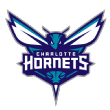
The return for Charlotte here doesn't look great. The Hornets both move their first-round pick back a year and presumably move down in the draft to where the Denver pick will fall as compared to this year's 13th selection. None of the four second-round picks Charlotte also got from New York seem likely to make up that value. The Knicks' own picks are most likely to fall in the top half of the round but still unlikely to be much higher than 40th.
On the plus side, the Hornets were still able to get the center they presumably wanted all along (Duke's Mark Williams) with the 15th pick. Additionally, shedding the 13th pick does save a bit of money for Charlotte to match a potential offer sheet (possibly from Detroit) for Bridges. Retaining Bridges is probably more important to the Hornets' future than maximizing this pick.

76ers deal for De'Anthony Melton
How can Melton help the Philadelphia 76ers? The Sixers acquired Melton, the most valuable current NBA player to be traded during Thursday's draft, from the Memphis Grizzlies in exchange for the No. 23 pick and injured wing Danny Green.
76ers get:
De'Anthony Melton
Grizzlies get:
David Roddy (No. 23 pick in 2022)
Danny Green
Philadelphia 76ers: B+

Four years ago, Sixers president of basketball operations Daryl Morey took Melton with the No. 46 pick, envisioning him playing alongside James Harden for the Houston Rockets. That never came to pass because Melton was traded to the Phoenix Suns two months later before ever playing in Houston. Now, after a stop in Memphis where Melton established himself as the kind of impact defender Morey surely expected, that plan will finally play out in Philadelphia.
Playing off the bench for the Grizzlies, Melton developed into a reliable shooter (39% from 3-point range the past two seasons) who offers one of the league's better combinations of rebounds, steals and blocks from the backcourt. Melton is stretched a bit as a lead ball handler but won't likely have to play that role much for the Sixers alongside Harden and Tyrese Maxey. Meanwhile, his shooting differentiates him from new teammate Matisse Thybulle, also an ace perimeter defender.
From Philadelphia's standpoint, Melton's descending contract (which pays him $8.25 million in 2022-23 and $8 million in 2023-24) was surely appealing. The 76ers could rightfully believe Melton is far better (and younger; he's still just 24) than anybody they could have signed by using their non-taxpayer midlevel exception this summer.
With Melton on the books instead of Green's non-guaranteed contract, Philadelphia will presumably now be limited to the smaller taxpayer midlevel exception. Having both that and Melton is preferable in the short term to having the No. 23 pick and the non-taxpayer exception. Melton probably won't start for the Sixers, who presumably want more size on the perimeter, but he could finish games alongside Harden and Maxey depending on the matchups.
Down the road, Philadelphia might miss having a first-round pick on a rookie contract. The 76ers will send next year's first-rounder to the Brooklyn Nets as part of the Harden trade and owe a top-six-protected pick to the Oklahoma City Thunder from the deal to acquire Green. That leaves Philly with just one first-round pick over the next three years.

With starting wing Dillon Brooks in and out of the lineup, Melton averaged a career-high 22.7 MPG for the Grizzlies in 2021-22 and was a key part of the team finishing with the West's second-best record. Come playoff time, however, it was Melton's role that was variable. He didn't see any action during the last two games of Memphis' first-round series against the Minnesota Timberwolves and played sparingly in the final two losses to the Golden State Warriors in the second round.
For now, the Grizzlies have plenty of flexibility to retain their deep rotation. Down the road, as extensions kick in for Ja Morant in 2023-24 and Desmond Bane the season after that, Memphis will have to start making some more difficult choices. This was the first such domino with Memphis choosing another player on a rookie contract (Colorado State forward David Roddy) over Melton.
In the short term, the Grizzlies will undoubtedly be weaker. Eventually they'll surely hope to develop a low-cost replacement for Melton, nabbed from the Suns after a disappointing rookie season. Memphis has proven adept at finding contributors, but I think Melton will prove difficult to replace.
To complete this deal, the Grizzlies will have to guarantee part of Green's $10 million salary for 2022-23, which was non-guaranteed through July 1. If the deal is completed before then, Memphis would have to guarantee a little less than $5 million of that to match Melton's salary. The Grizzlies have more than enough cap room to guarantee the whole thing and keep Green, who suffered an ACL tear during the playoffs and likely won't play next season, to use in trade as an expiring contract.

Grizzlies trade for No. 19 pick
Grizzlies get:
Jake LaRavia (No. 19 pick in 2022)
Future second-round pick
Timberwolves get:
Walker Kessler (No. 22 pick in 2022)
TyTy Washington Jr. (No. 29 pick in 2022)
Did trading an additional first-round pick to move up three spots for Wake Forest forward Jake LaRavia make sense for the Grizzlies?
Continuing a tradition under 2021-22 NBA executive of the year Zach Kleiman, the Grizzlies dealt the No. 22 and No. 29 picks in the first round to the Timberwolves for the No. 19 pick. As Chris Herrington of the Daily Memphian noted, every Memphis first-round pick under Kleiman except taking Ja Morant with the second pick in 2019 has come after a trade up.
Although the jury is still out on last year's deals for forward Ziaire Williams and center Santi Aldama, the Grizzlies did well to maneuver into position to take versatile big men Brandon Clarke (2019) and Xavier Tillman Sr. (2020 second round) and have gotten huge returns from 2020 first-round pick Desmond Bane.
On the flip side, the Timberwolves undoubtedly have to feel great about picking up an extra first-round pick in exchange for moving back just three spots and sending out a future second-rounder.
Memphis: C

Unless the second-round pick the Grizzlies are getting ultimately lands in the top handful of picks in the round, Memphis will lose it from a value perspective according to my trade value chart of what NBA draft picks are worth. No. 22 and No. 29 are worth a combined 1,550 points based on typical production for those picks above and beyond their salary, as compared to 1,120 points for the No. 19 pick.
The Grizzlies have shown they're less concerned about maximizing value than getting their guy, a strategy that has generally worked out for them. Memphis was also well positioned to make a 2-for-1 deal. The Grizzlies entered the night with 12 players under contract and the two first-rounders plus a couple of rotation free agents (Kyle Anderson and Tyus Jones) they might want to re-sign. Trading De'Anthony Melton for the No. 23 pick and injured wing Danny Green in a subsequent trade only deepened the roster crunch.
At this stage of the draft, it's awfully optimistic for a team to believe it can improve its chances of hitting on an individual pick by moving up a few spots. Although Memphis won its 2019 trade up for Clarke, three years later it now looks like the Boston Celtics got the better player in a similar draft-night move from No. 20 to No. 22, taking Grant Williams when the Philadelphia 76ers moved up for Matisse Thybulle.
Minnesota: A-

From the Timberwolves' perspective, this move looks like an easy call. Minnesota moved down three spots and still ended up with the player ESPN's Jonathan Givony had projected to them at No. 19, Auburn center Walker Kessler. Assuming the Timberwolves planned to take Kessler either way, they were able to convert a future second-round pick into a first-rounder for nothing.
Later, Minnesota added a couple more future second-rounders to move up three spots from No. 29 to No. 26 and add Duke forward Wendell Moore Jr.

PRE-DRAFT DEALS
June 22: Blazers trade for Grant
Trail Blazers get:
Jerami Grant
2022 second-round pick (No. 46)
Pistons get:
2022 second-round pick (No. 36)
2025 first-round pick (via Milwaukee)
2025 second-round pick
2026 second-round pick
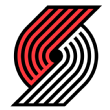
Essentially, we can think of the Grant trade as part two of the deal that sent McCollum to the Pelicans ahead of the February trade deadline. Not only did the Blazers get the future first-round pick they sent to Detroit in the McCollum trade, they also generated the trade exception used to take on Grant's salary.
Stripping out players on expiring contracts, Portland ultimately gave up McCollum, useful reserve Larry Nance Jr. and a pair of future second-rounders in order to get Grant, wing Josh Hart, unproven youngster Didi Louzada and the 59th pick in this year's draft. I think that combination of moves makes sense for the Blazers.
In a vacuum, McCollum -- particularly the version we saw running the point for New Orleans after the trade -- is likely a better player than Grant. However, Grant (who was actually born in Portland while his dad, Harvey, was a member of the Blazers) is 2½ years younger, will make $12 million less in 2022-23 and better fits the team's needs. With the emergence of Anfernee Simons as a third ball handler and shot-maker, an athletic forward like Grant was a far greater priority.
MORE: Grade for the Pistons

June 15: Mavericks acquire Wood
Mavericks get:
Christian Wood
Rockets get:
2022 first-round pick (No. 26)
Boban Marjanovic
Marquese Chriss
Trey Burke
Dallas Mavericks: B-
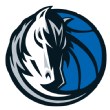
Adding Wood is an interesting response to Dallas' run to the West finals.
Presumably, the Mavericks wanted to add another big man capable of stretching the floor. They had their most postseason success with Maxi Kleber or even Davis Bertans in the middle rather than starter Dwight Powell, who did not make a 3-pointer in their postseason run.
Like Kleber, Wood is capable of filling an increasingly important role in the modern NBA: playing power forward during the regular season then sliding down to center in the playoffs as teams downsize. Wood's ability to both make 3s (he shot a career-high 39% last season on a robust 5.8 attempts per 36 minutes, nearly as many as Kleber's 6.3 attempts) and providing a modicum of rim protection will give Dallas coach Jason Kidd the flexibility to play him with any of the team's other frontcourt options.
MORE: Grade for the Rockets

June 13: OKC gets Green, sends pick to Denver
Thunder get:
JaMychal Green
Protected 2027 first-round pick
Nuggets get: 2022 first-round pick (No. 30)
Two future second-round picks

Oklahoma City could put Green on the Al Horford plan and try to rehab his value by the deadline. More likely, with the Thunder expected to draft a big man No. 2 overall, Green could be traded for a player on a worse contract this summer. He might be an interesting fit with the Utah Jazz as a more mobile backup 5, depending on what other, more dramatic changes the Jazz might make this offseason.
Second, there's the question of whether Oklahoma City got enough value here. Depending on the second-round picks the Thunder send out in 2023 and 2024, a distant first-round pick for No. 30 this year and two second-rounders doesn't seem like a great return. That might be consistent with what we've seen in past deals to move up in the draft, in which Oklahoma City has been willing to overpay from a surplus of picks.
But, pending protections on the 2027 pick, the Thunder could win big betting against the Nuggets' long-term future. By 2027, Jokic will be 32 years old and Denver's current core could be prohibitively expensive with Jokic likely to sign a supermax extension and Jamal Murray due for a new contract. If Denver ends up a low-level playoff team or worse, Oklahoma City could get access to a quality draft pick just as the franchise hopes to hit contention with this year's No. 2 pick entering his prime.
MORE: Grade for the Nuggets
